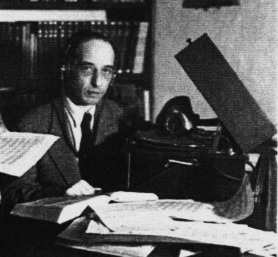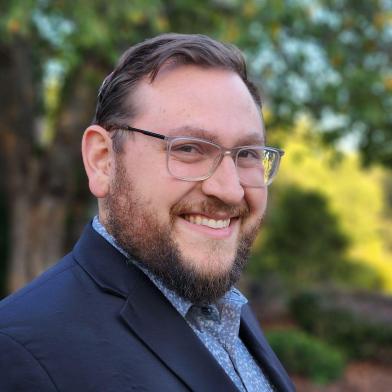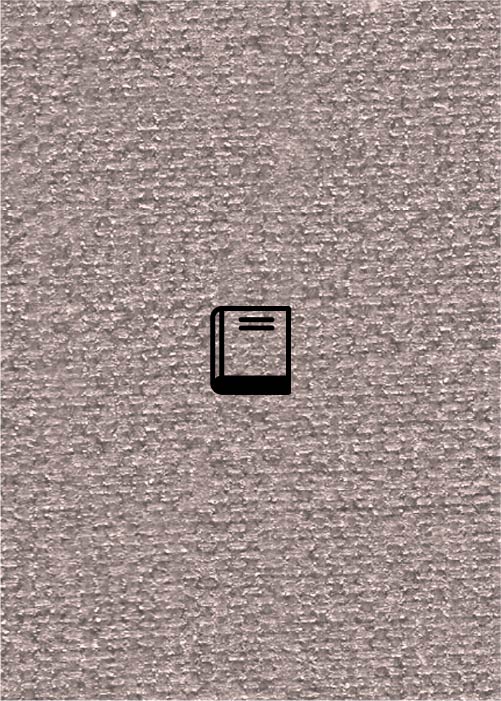Robert Lachmann was born in Berlin and began his formal education at the University of Berlin and at the University of London, with a focus on French and Arabic languages. During World War I he served as an interpreter at the Wünsdorf POW camp, populated by primarily North African and Indian prisoners. It was there that Lachmann was first exposed to non-Western music and folklore, and he began working on transcriptions of the prisoner’s songs. His experience in Wünsdorf quite likely planted the seeds for his doctorate research of North African music. After the war, Lachmann began to study musicology formally at BerlinUniversity under Johannes Wolf and Carl Stumpf. He finished his doctorate in 1922 with a dissertation on the urban music of Tunisia, based on his field recordings from several research expeditions in the region. In the years that followed, Lachmann made a number of additional research expeditions to North Africa, recording and documenting the musical practices of communities in Tripoli, Tunisia, Kabylia, the Isle of Djerba and Morocco.
In 1929, while in Djerba, Lachmann recorded the liturgical and paraliturgical musical traditions of the local Jewish community, material that served as the base for his seminal work, Jewish Cantillation and Song in the Isle of Djerba (1940). His study of the Djerba Jewish community was in fact his first exposure to Oriental liturgical music, an area which he continued to research many years later in Jerusalem.
From 1927 to 1933 Lachmann worked as a librarian for the music department of the Berlin State Library, heading a project to translate several important Medieval Arabic music treatises. In 1930, along with fellow teachers and colleagues Johannes Wolf, Curt Sachs, Georg Schunemann and Erich von Hornbostel, Lachmann founded the Society for the Research of Oriental Music. Lachmann was appointed the editor of their quarterly journal, Zeitschrift für vergleichende Musikwissenschaft, which was in print for three years until mounting pressures lead to the close of the center in 1935. In 1932, Lachmann was appointed the head of the Phonogram Commission for the Congress of Arab music in Cairo, and was responsible for recording the performances of the artists and ensembles invited to the conference. In 1935, Lachmann was fired from his position at the State Library by Nazi officials, and in the same year emigrated to Jerusalem upon the invitation of J.L Magnes to found the Archive of Oriental Music at Hebrew University.
Lachmann ran the Archive with the help of one sound technician. During the four years before his death in 1939, he managed to record 1,000 new items, primarily sound clips of Oriental liturgical music. Lachmann’s main goal in researching the music of Oriental Jewish communities was to set their traditions in the larger context of Near Eastern musical practices, thereby creating an historic and comparative model for the entirety of ‘Oriental’ and Asiatic music. In 1964, the Lachmann Archive was transferred to the Givat Ram campus where it was catalogued and incorporated into the National Sound Archives by the music department of the Jewish National and University Library, making it available to students and researchers. The archive includes over 1,000 sound recordings, numerous research documents, early commercial records of Arabic music, and photographs from Lachmann’s North African expeditions.
For further information on Lachmann's contribution to ethnomusicological research in Israel, see here: Gerson Kiwi, Edith (Esther). "Robert Lachmann: His Achievement and His Legacy." Yuval - Studies of the Jewish Music Research Center, vol. III (1974).
Additional Bibliography
Davis, Ruth F. ‘‘Ethnomusicology and Political Ideology in Mandatory Palestine: Robert Lachmann’s ‘Oriental Music’ Projects.’’ Music and Politics 4/2 (2010): 1–14.
Davis, Ruth F. Robert Lachmann: The Oriental Music Broadcasts, 1936-1837–a Musical Ethnography of Mandatory Palestine. Middleton, WI: A-R Editions Inc, 2013.
Davis, Ruth F. "Cycles of Encountering: Revisiting Robert Lachmann’s Oriental Music Project in Mandatory Palestine." In Music and Encounter at the Mediterranean Crossroads: A Sea of Voices, edited by Ruth F. Davis and Brian Oberlander. Routledge, 2022.
Katz, Ruth. The Lachmann Problem: An Unsung Chapter in Comparative Musicology. Jerusalem: Hebrew University Magnes Press, 2003.
Katz, Israel J. and Sheila M. Craik. Robert Lachmann’s Letters to Henry George Farmer (from 1923 to 1938). Leiden: Brill, 2020.
Lachmann, Robert. Gesaenge de Juden auf der Insel Djerba (Posthumous Works, II). Edited by Edith (Esther) Gerson Kiwi. Yuval Monograph Series, vol. 7. Jerusalem: The Magnes Press, The Hebrew University, 1978. (in German)
See also The Edith Gerson-Kiwi Legacy project on our website.






